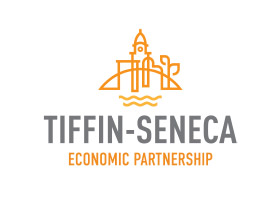HU one of 5 schools nationally to pilot new courses trending in tech industry
 TIFFIN – Heidelberg University and Google are collaborating to offer computer science, data science and machine learning courses to undergrad students who might not have considered themselves destined for a technology career.
The Applied Computing Series is a new, three-course program that will increase students’ access to quality data science and machine learning education by leveraging new technologies and teaching styles. In partnership with Google, Heidelberg will offer two Applied Computing courses during the academic year, Foundations of Python Programming and How to Think Like a Data Scientist. The third is an advanced course, the Applied Machine Learning Intensive, a 10-week, summer program designed to offer non-computer science majors a crash course in data engineering and machine learning that they can apply to their own majors and areas of expertise.
Heidelberg is one of only five colleges and universities selected nationally to collaborate with Google to pilot all three offerings in the new Applied Computing Series.
“Heidelberg’s partnership with Google will allow us to rethink the way traditional computer science is taught, as well as to prepare students for a new career path in machine learning with great market demand,” said Provost Dr. Beth Schwartz.
According to Google, the Applied Computing Series teaches the foundations of computer and data science, designed to attract students who might not have considered themselves destined for a technology career. All of the courses leverage tools and techniques used at Google and in the wider tech industry, while also teaching the non-tech skills needed to be successful at work more generally: soft skills required by employers, including critical thinking and problem solving, collaboration and the ability to communicate and network.
The courses will teach students more than how to code. They will also teach data analytics, statistical techniques and machine learning modeling. “All of the courses combine high-impact practices that include skills in hands-on, collaborative projects meant to solve real-life problems in the tech industry and beyond,” Schwartz said, adding that the courses will reinforce the goals of Heidelberg’s HYPE Career Ready® Program.
Heidelberg has been piloting courses in this sequence with Google since January, said Sean Joyce, assistant professor and chair of computer science. “These courses complement and strengthen our long-standing computer science and information systems majors in engaging and exciting ways,” he said. “Our partnership with Google provides additional options for students who may or may not be majors but who recognize the importance of computational thinking and data analysis to their chosen fields of study.”
HERE'S HOW IT WORKS
Courses are taught using a “flipped classroom” model, where students review, study and practice material on their own, then work on collaborative projects in groups with coaching by their instructors.
Google is building these robust courses in partnership with highly regarded computer science academics. The Google instructional team builds the centralized content and in-class projects so that students have relevant, real-world problems to solve. The courses are then facilitated by Heidelberg faculty in STEM-related fields.
HERE’S WHAT STUDENTS GAIN UP FRONT
TIFFIN – Heidelberg University and Google are collaborating to offer computer science, data science and machine learning courses to undergrad students who might not have considered themselves destined for a technology career.
The Applied Computing Series is a new, three-course program that will increase students’ access to quality data science and machine learning education by leveraging new technologies and teaching styles. In partnership with Google, Heidelberg will offer two Applied Computing courses during the academic year, Foundations of Python Programming and How to Think Like a Data Scientist. The third is an advanced course, the Applied Machine Learning Intensive, a 10-week, summer program designed to offer non-computer science majors a crash course in data engineering and machine learning that they can apply to their own majors and areas of expertise.
Heidelberg is one of only five colleges and universities selected nationally to collaborate with Google to pilot all three offerings in the new Applied Computing Series.
“Heidelberg’s partnership with Google will allow us to rethink the way traditional computer science is taught, as well as to prepare students for a new career path in machine learning with great market demand,” said Provost Dr. Beth Schwartz.
According to Google, the Applied Computing Series teaches the foundations of computer and data science, designed to attract students who might not have considered themselves destined for a technology career. All of the courses leverage tools and techniques used at Google and in the wider tech industry, while also teaching the non-tech skills needed to be successful at work more generally: soft skills required by employers, including critical thinking and problem solving, collaboration and the ability to communicate and network.
The courses will teach students more than how to code. They will also teach data analytics, statistical techniques and machine learning modeling. “All of the courses combine high-impact practices that include skills in hands-on, collaborative projects meant to solve real-life problems in the tech industry and beyond,” Schwartz said, adding that the courses will reinforce the goals of Heidelberg’s HYPE Career Ready® Program.
Heidelberg has been piloting courses in this sequence with Google since January, said Sean Joyce, assistant professor and chair of computer science. “These courses complement and strengthen our long-standing computer science and information systems majors in engaging and exciting ways,” he said. “Our partnership with Google provides additional options for students who may or may not be majors but who recognize the importance of computational thinking and data analysis to their chosen fields of study.”
HERE'S HOW IT WORKS
Courses are taught using a “flipped classroom” model, where students review, study and practice material on their own, then work on collaborative projects in groups with coaching by their instructors.
Google is building these robust courses in partnership with highly regarded computer science academics. The Google instructional team builds the centralized content and in-class projects so that students have relevant, real-world problems to solve. The courses are then facilitated by Heidelberg faculty in STEM-related fields.
HERE’S WHAT STUDENTS GAIN UP FRONT
- Skills that will position them for entry-level positions in the burgeoning machine learning workforce
- Opportunities to work with Google engineers to learn about the tech industry’s working environments, challenges and nuances
- Immersion in a project-based curriculum to help reinforce the computer and data science principles they’re learning

